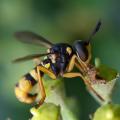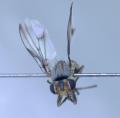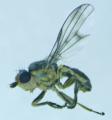Diptera.info :: Identification queries :: Diptera (adults)
Who is here? 1 guest(s)
|
Anthomyiidae ex Atriplex halimus
|
|
| HDumas |
Posted on 05-11-2024 20:49
|
|
Member Location: Southern France Posts: 187 Joined: 24.04.09 |
Hello, Two larvae get out of a leaf of Atriplex halimus growing along the mediterranean sea. They pupate in the rearing box and two males emerges. Here is one of them: 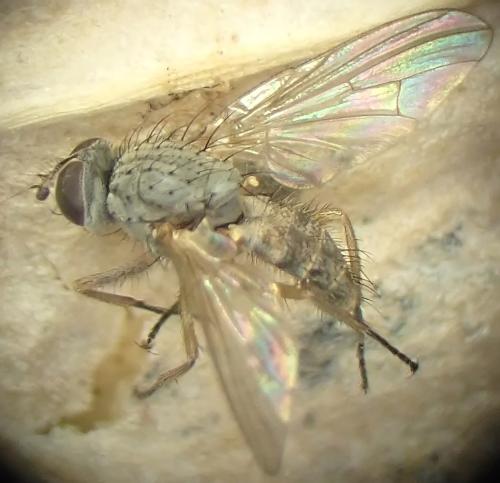 H. Dumas : France : La Ciotat : 13600 : 30/09/2024 Altitude : NR - Taille : 4.5 mm Réf. : 350782 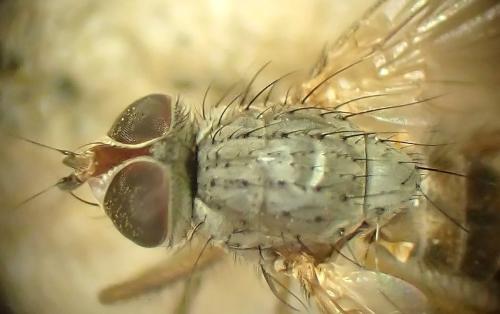 H. Dumas : France : La Ciotat : 13600 : 30/09/2024 Altitude : NR - Taille : -- Réf. : 350817 I don't see the "short blunt spines on the lobes of the fifth sternite" of Delia albula. May I have your opinion? Greetings from Provence |
|
|
|
| John Carr |
Posted on 05-11-2024 22:26
|
|
Member Location: Massachusetts, USA Posts: 10165 Joined: 22.10.10 |
Is Delia albula a leaf miner in Atriplex? Delia echinata larvae move through stems between leaves. Adult males have at least 2 av, 4 ad, and 3 pd on hind tibia. A few members of the Pegomya (Pegomya) hyoscami species group are leaf miners in Chenopodiaceae. Those are the only Anthomyiidae I know of that might have come out of your leaf mines. A picture of the 5th sternite might help ID. |
| HDumas |
Posted on 06-11-2024 23:14
|
|
Member Location: Southern France Posts: 187 Joined: 24.04.09 |
I know nothing about Delia albata, except that it has been found along the Channel (Zuydcoote). The genus Delia was just proposed as a possibility on the french forum. Here are two other pictures if they can help: the last sternites: 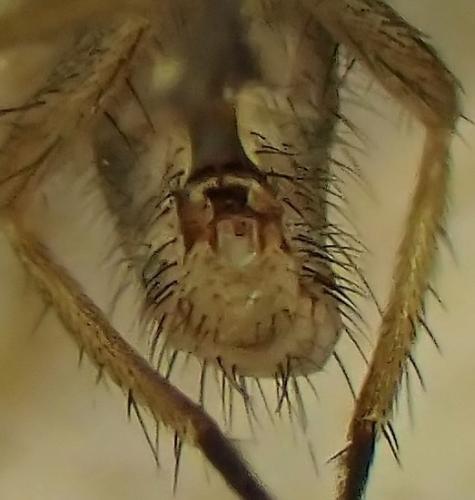 H. Dumas : France : La Ciotat : 13600 : 30/09/2024 Altitude : NR - Taille : -- Réf. : 351846 the left hind tibia (front view): 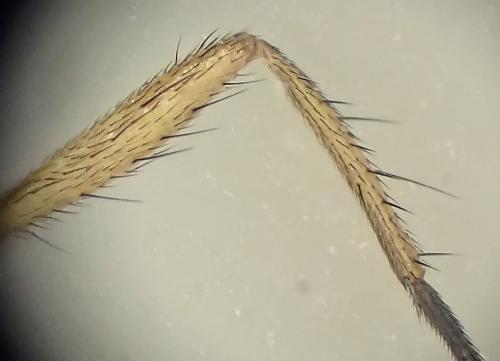 H. Dumas : France : La Ciotat : 13600 : 30/09/2024 Altitude : NR - Taille : -- Réf. : 351845 Greetings from Provence |
|
|
|
| John Carr |
Posted on 07-11-2024 00:18
|
|
Member Location: Massachusetts, USA Posts: 10165 Joined: 22.10.10 |
The shape of the 5th sternite does not match Delia echinata. Some members of the Pegomya hyoscyami group have the arms incurving at the tips like your fly and I think your fly belongs to that group. I do not have a reference for European species, other than those that are also found in North America.
Edited by John Carr on 07-11-2024 00:19 |
| John Carr |
Posted on 07-11-2024 00:26
|
|
Member Location: Massachusetts, USA Posts: 10165 Joined: 22.10.10 |
The paper by Michelsen separating the European species is online. https://www.resea...thomyiidae |
| Jump to Forum: |



